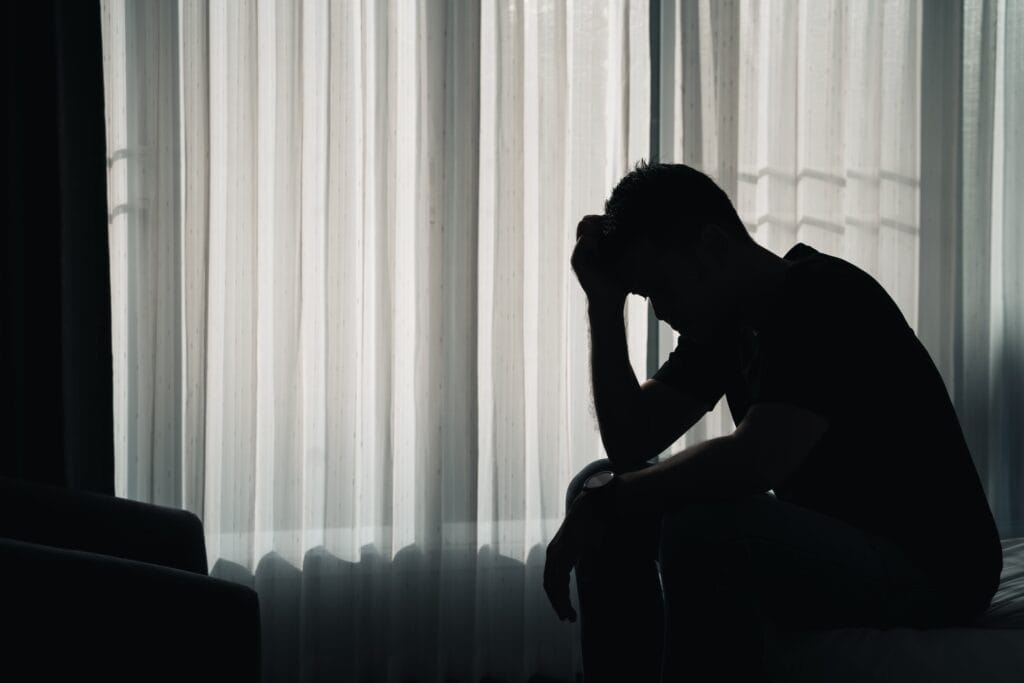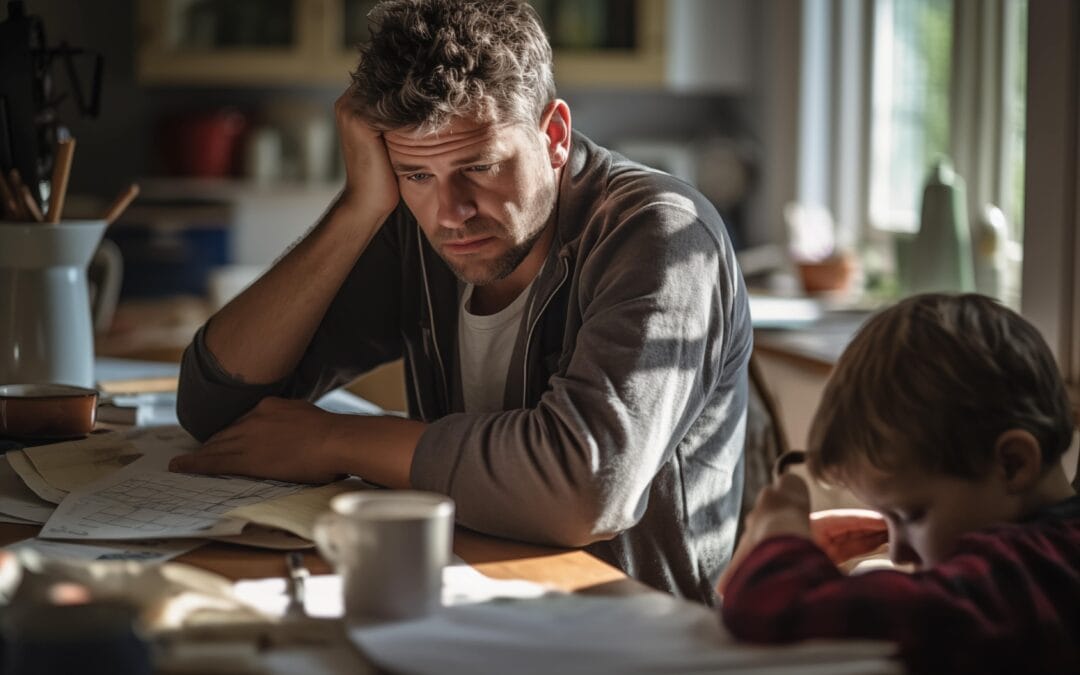Does Depression Make You Tired?

Depression is a mental health condition impacting millions of people around the world. The emotional effects of depression are acknowledged widely, but the impact on physical energy levels can be overlooked. Depression can be debilitating when it’s not treated, and that leads to exhaustion and extreme fatigue, to the point that you may feel like it’s affecting every part of your life.
When you’re struggling with depression, it disrupts your brain’s balance of neurotransmitters, leading to symptoms that go well beyond mood disturbances. Unlike the fatigue you might feel after not getting good sleep the night before or doing something physically strenuous, depression-related fatigue tends to persist no matter how much sleep you get.
Understanding Depression
Depression is characterized by hopelessness, nearly constant feelings of sadness, and a loss of interest in once-enjoyable activities. It’s beyond typical feelings of grief or sadness, and it leads to significant impairments throughout many aspects of a person’s life.
Symptoms can vary in intensity and include what’s mentioned above:
- Changes in weight or appetite, including either significant weight gain or loss.
- Excessive sleeping or insomnia.
- Loss of energy or fatigue.
- Feelings of guilt or worthlessness.
- Problems concentrating, remembering things, or making decisions.
- Irritability or restlessness.
- Experiencing thoughts related to death or suicide.
Depression causes are complex, involving a combination of biological, genetic, environmental, and psychological factors. Depression contributors can include imbalances in brain chemistry related to serotonin, dopamine, and norepinephrine, which play a role in both mood and genetics. People with a family history of depression are at a greater risk of also developing it themselves, leading researchers to believe there is a genetic predisposition.
Biological factors like hormonal imbalances, neurological disorders, and chronic illnesses can raise the risk of depression, as can a history of traumatic life events. Environmental factors like violence in the home or a lack of social support may increase the vulnerability to depression, as can certain personality traits. These traits can include neuroticism, a tendency to ruminate, and introversion.
The Relationship Between Depression and Fatigue
Feeling extremely tired is a common and often debilitating symptom of depression. If you’re dealing with depression, you may find that you feel both mentally and physically exhausted no matter how much rest you get or feel you’re getting. Some reasons that depression can make you tired include:
- Disruptions in sleep patterns: Depression is common, and it can disrupt sleep patterns, making it hard to fall asleep or stay asleep. It’s also more challenging to have restorative sleep. You might spend more time in the lighter sleep stages rather than deep sleep, so even after you sleep for the entire night, you might wake up still feeling tired and unrefreshed.
- Neurotransmitter levels: Imbalances in neurotransmitters can also impact regulating your energy levels. You might feel sleepy and lethargic because of serotonin, norepinephrine, and dopamine imbalances.
- Hypothalamic-Pituitary-Adrenal (HPA) Axis Dysregulation: The HPA axis controls our body’s stress response, and for people with depression, it’s often dysregulated. Chronically elevated cortisol levels and stress, both of which occur with depression, can disrupt your natural circadian rhythms, leading to exhaustion.
- Inflammation: Depression is associated with higher inflammation levels in the body. Chronic inflammation contributes to feelings of fatigue because it disrupts normal energy metabolism and cellular processes.
- Anhedonia: This is the loss of pleasure or interest in things you once enjoyed, and it’s a significant symptom of depression. If you don’t find motivation or joy in activities, doing even simple things feels overwhelming and exhausting.
- Emotional exhaustion: If you constantly battle feelings of worthlessness, hopelessness, and sadness, it takes a toll on your energy levels. You may feel drained continuously because you’re working to cope with these intense emotions.
- Lack of self-care: When you have depression, you might not engage in energizing self-care activities, like exercise and eating well. This can make fatigue worse and continue to reduce your energy levels.
- Medication: Sometimes, the tiredness associated with depression can stem from the use of certain medications, which may have fatigue or drowsiness as side effects.
Depression and fatigue are often very much interrelated for several reasons.
How Treatment Helps Manage Fatigue in Depression
Depression treatment works to address the underlying causes of the condition but also reduces, or altogether eliminates specific symptoms—including tiredness.
There are a lot of ways to approach fatigue management in depression. Two of the main ways are through the use of medication and psychotherapy. Antidepressant medicines can help improve your mood and reduce symptoms of depression, indirectly alleviating fatigue. While you may experience fatigue as a side effect when you first start an antidepressant, it usually gets better over time. If one medication makes your fatigue worse, you can also talk to your mental healthcare provider about other options until you find the right fit for you.
Psychotherapy, such as cognitive-behavioral therapy, can help when you have depression. You can work on identifying and addressing negative thought patterns and developing coping strategies. When you have healthier coping mechanisms you can rely on, you can better manage fatigue.
Other ways you can address feeling tired when you have depression include:
- Use sleep management strategies to establish healthy habits and improve your sleep quality.
- Changes in lifestyle, such as regular exercise, staying hydrated, avoiding substances, and having a balanced diet, might help with fatigue.
- Chronic stress makes fatigue and other depression symptoms worse, so it can be helpful to learn ways to deal with stress more effectively, such as mindfulness meditation, and deep breathing exercises.
- Social support from friends, family, or support groups can give you emotional encouragement and feelings of belonging, which will help manage your depression symptoms, including fatigue.
- Activity pacing is when you break tasks into smaller and more manageable steps, pacing yourself throughout the day to avoid feeling overwhelmed and conserve energy. Setting realistic goals and prioritizing your daily activities can help you reduce your fatigue and boost your productivity.
- Complementary therapies, like herbal supplements, acupuncture, or massage therapy, may help alleviate fatigue.
- Medication adjustments can be made if your fatigue persists, even with treatment. Along with exploring alternative medicines, your healthcare provider might also opt to adjust your dosage.
The biggest thing to keep in mind when it comes to feeling tired from depression is that treating the underlying issue is going to help you with your symptoms. That means that you should get treatment from a team of professionals.
At Midwest Recovery Centers, we offer customized depression treatment plans both as part of our primary mental health care and in our addiction treatment programs. Our team can assess your symptoms and work to create a treatment and aftercare plan that will help you thrive. Contact us today to learn more.




